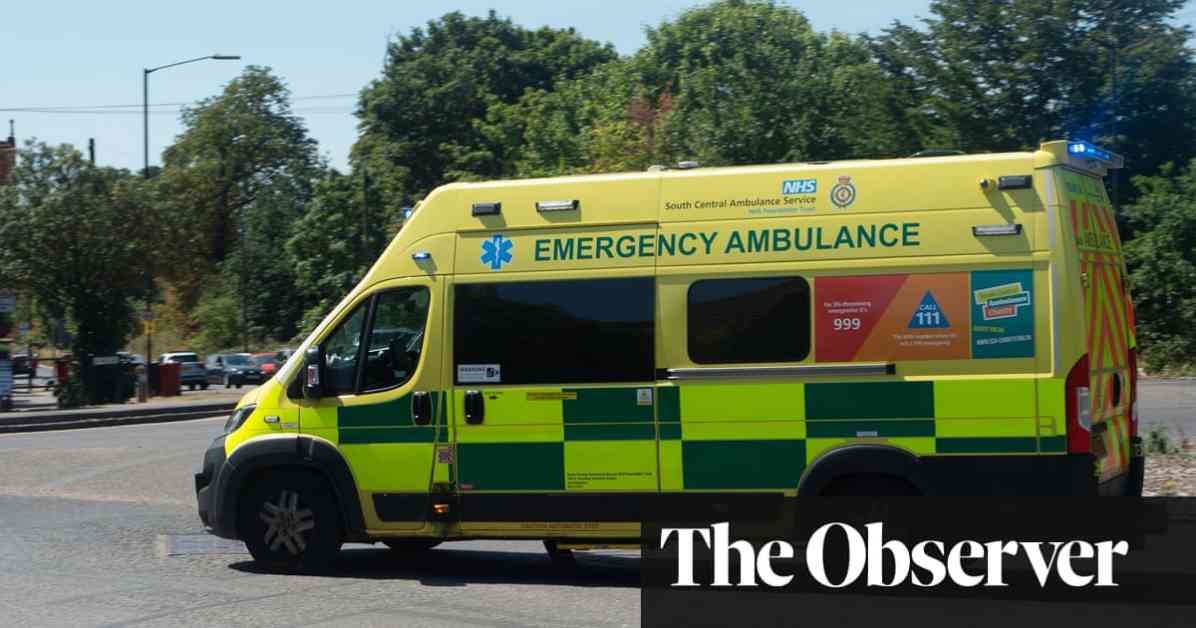Thousands of patients are not accounted for in official health statistics because they are not seen by hospitals or GPs, according to a recent study of ambulance data in England. The Yorkshire ambulance service (YAS) attended to around 800,000 calls last year, with over a third of these patients, about 288,000 individuals, not ending up in the hospital. Many of these patients had mental health concerns.
Some patients received treatment from ambulance staff on-site, visited a GP later, or even went to the A&E themselves. However, conditions like mental health issues, substance misuse, or self-harm, which are not typically treated in hospitals, are likely to be significantly underreported, as per the analysis conducted by YAS and the Association of Ambulance Chief Executives (AACE).
Looking specifically at mental health issues in under-18s in Yorkshire and the Humber, the study found that while NHS data showed 870 hospital admissions, YAS received approximately 3,300 calls. Verity Bellamy, a senior public health analyst at YAS, pointed out that this indicates that nearly three-quarters of young people in need of help are missed when only relying on hospital data.
The study, presented at the NHS ConfedExpo, was conducted by Bellamy and Ruth Crabtree, also from YAS and AACE. They plan to expand this analysis to cover all of England. This approach of analyzing ambulance data is a new perspective for the sector, which typically focuses on performance and demand metrics.
Ambulances are increasingly providing care on-site for individuals who prefer not to go to the hospital, including homeless people, refugees, and older, more fragile individuals. Dr. Steven Dykes, YAS deputy medical director, highlighted that ambulance crews are managing a significant amount of cases at home, particularly in deprived areas, where the ambulance rate is twice as high compared to affluent areas.
The analysis revealed that over half of mental health-related calls were from individuals under 40, with a quarter coming from those under 25. Additionally, people in the most deprived areas accounted for a substantial portion of calls related to breathing difficulties.
The study also shed light on the impact of the dental care crisis, with over 5,000 calls for toothache in children under 10, primarily from the most deprived groups. This data serves as an early warning system for the health service, providing insights that can help in planning and improving access to necessary services.
YAS is collaborating with mental health trusts and charities to enhance patient access to services and address issues like the transition from child to adult mental health services. By focusing on prevention and addressing gaps in the system, the ambulance service aims to provide better care and support to those in need.


















